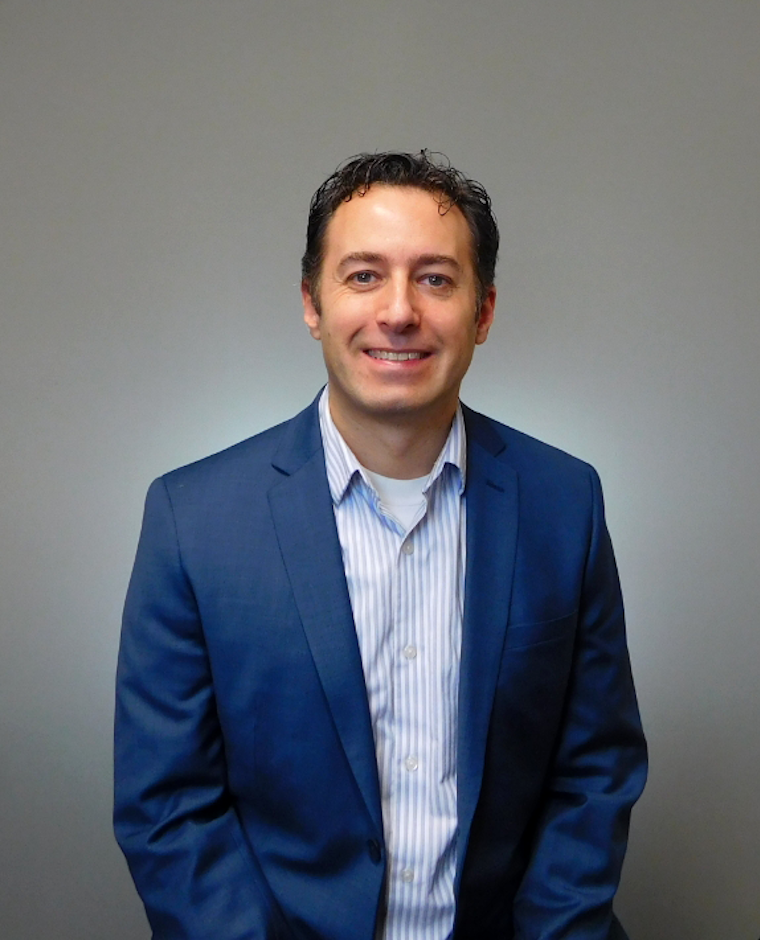This interview is one in a series of interviews with recipients of the 2022 ACGME Awards. The awardees join an outstanding group of previous honorees whose work and contributions to graduate medical education (GME) represent the best in the field. They will be honored at the ACGME Annual Educational Conference, taking place virtually March 30-April 1, 2022.
2022 Parker J. Palmer Courage to Teach Awardee Dr. Michael Aylward is the program director for the internal medicine-pediatrics program at the University of Minnesota Medical School in Minneapolis.
ACGME: How did you become involved in medicine, and in academic medicine specifically?
Dr. Aylward: I’ve wanted to be a physician for as long as I can remember. Initially, it had the appeal of merging science and the humanities, and I thought that was interesting. However, as I went through college and then medical school, I realized that being a physician meant having responsibility and using the privilege that society provides us to care for patients and to help improve their circumstances. As I learned about the social drivers of health, I came to realize that being a physician meant that we can, and must, use this societal power and privilege granted to us to impact the aspects of the world that affect all our patients. I see academic medicine, and being a program director specifically, as a means to impact the greater world. I have the honor to have a hand in the training of dozens of amazing physicians who will have 30-, 40-, or 50-year careers. Each of them will in turn impact patients, learners, communities, systems, and society. I see the small role that I play in this chain of change as the key reason for being a program director.
ACGME: What does this award mean to you?
Aylward: To say this award is a huge honor is a colossal understatement. I’ve seen many of my role models and aspirational leaders received this award, and to be considered in the same echelon as some of these folks is amazing. Moreover, the fact that this is a primarily teaching award has special significance for my family and friends — my wife is a teacher, as are some of my closest friends, and, of course, my four daughters are all students. My wife and friends know who Parker Palmer is and what he stands for, and my daughters get to see that both of their parents as teachers.
ACGME: What do you feel is the most important job the program director has?
Aylward: To help residents become the type of physician they want to be. This starts with clinical excellence, but also includes career decision making, maintaining well-being and work-life integration, giving autonomy and support when appropriate, and challenging them when needed. It means listening to individuals and groups and using what is learned to move the program forward. Most of all, it means helping residents develop life-long habits of learning, advocacy (including for themselves), and self-care.
ACGME: What is the most rewarding part of your job?
Aylward: I love seeing (and being a part of) a resident’s transition from wide-eyed uncertainty to confidence and excellence over the course of four years. This trajectory is non-linear, has swirls and bumps, and set-backs, and that means I can be part of their growth in good times and in bad.
ACGME: What is the most challenging?
Aylward: Realizing that I am part of a system that burns people out. We talk a lot about burnout in medicine at various levels, and I feel that we’ve, appropriately, moved on to focusing on systems and structures as the mechanism for addressing burnout. However, I think it’s easy to forget that systems are created and maintained by people making choices, and that we all, to various extents, contribute to these systems. I think leaders at all levels, from chief residents to program directors to deans to CEOs of hospital systems, regulatory, and policymaking bodies, need to consider how the decisions they make impact the burnout and mental health of physicians, and to make serious (often hard) choices that decrease burnout in meaningful ways. I am in that group, and I am troubled and challenged by my role in the burnout. I have also taken the perspective that I have the ability to improve the circumstances that lead to resident burnout in small but meaningful ways, and I’m being deliberate with my choices to do so.
ACGME: What advice do you have for residents or fellows who may be interested in pursuing a career in academic medicine?
Aylward: Be intentional with yourself and your career, but don’t lock yourself into anything too early. This means being deliberate with reflection and self-driven learning, and it means saying “yes” to a lot of things that may seem peripheral to your interests. It’s OK early on to try out different aspects of academic medicine before plunging into the deep end of any one of them and I think this is critical. Also, it looks from the outside like many people juggle many balls and keep them all perfectly spinning in the air. This is a fallacy — we all drop balls, are bad at things, and make mistakes. Be kind to yourself.
Learn more about the ACGME’s Parker J. Palmer Courage to Teach Award and nominate a deserving program director for the 2023 Award – nominations are due by April 6, 2022.

